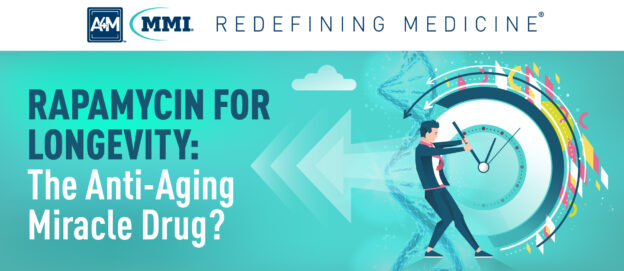Although the human lifespan has increased over recent decades, the human health-span has been unable to keep pace. While we are living longer due to scientific advancements, the number of years we spend without age-related diseases has not increased proportionately.
Lifestyle interventions often recommended too late in life tend not to be sufficient to prevent, halt, or reverse age-related decline. Research scientists are increasingly focusing on potential pharmaceutical interventions to combat the negative aspects of aging. One pathway of exploration aims to repurpose existing medications for geroprotection and is proving remarkably successful in early trials.
Enter Rapamycin
Rapamycin, also known as sirolimus, was initially introduced as an immunosuppressant medication for transplant patients and was approved for use by the Food and Drug Administration (FDA) in 1999. Upon further investigation, researchers discovered it also possessed anticancer properties and could increase life expectancy in mice and model organisms.
Currently, it is also the most promising anti-aging drug; however, even at low doses, it carries a significant risk of adverse side effects. As scientists continue to explore its potential to mitigate age-related disease and elongate the life- and health-span, a new study reveals whether short-term dosing in early adulthood can deliver lifetime anti-aging benefits with fewer side effects.
Investigating Brief Rapamycin Dosing
Led by Dr. Paula Juricic, a group of researchers at the Max Planck Institute for Biology of Aging in Cologne, Germany, set out to determine the optimal timing and duration of rapamycin treatment for lifelong geroprotection.
The study authors examined age-related changes in the intestine and changes to the lifespan in young adult drosophila – a type of fruit fly used as a genetic model organism – after two weeks of rapamycin administration. They also studied mice treated with rapamycin for three months at three months of age.
Short-Term Treatment, Long-Term Geroprotection
The recent study’s results were published in Nature Aging and revealed significant marker improvements in both cohorts. Rapamycin appeared to protect drosophila against age-related changes found in the intestine and extended their lifespans. At the same time, the treatment increased the integrity of the gut barrier in mice, with effects detected up to 6 months after withdrawing treatment.
Brief rapamycin treatment in early adult life was associated with the same degree of benefits as lifelong treatment; the authors highlighted the key role of intestinal enterocytes.
According to the researchers, short-term rapamycin administration’s long-lasting effects included prolonged autophagy activation and reduced age-related gut pathologies. Furthermore, the benefits of early rapamycin treatment observed in the small intestine of mice suggest “rapamycin memory” may be partially conserved in mammalian models.
Autophagy and Age-Related Diseases
The latest findings suggest that even the brief elevation of autophagy in early adulthood may induce a long-term increase in autophagy. Due to its strong geroprotective effects, rapamycin can be administered in early life for a short duration, mitigating some of the adverse effects observed with chronic, long-term dosing.
As autophagy is implicated in an array of age-related diseases, including cancer, immune system dysfunction, and neurodegenerative diseases, the potential to modulate it carries great significance for longevity medicine. Additionally, confirming rapamycin benefits in mice models opens new doors for potential human applications.
Current Implications and Future Applications
“We have found a way to circumvent the need for chronic, long-term rapamycin intake, so it could be more practical to apply in humans,” explains Dr. Yu-Xuan Lu, a co-author of the paper.
The data illuminate a new path toward geroprotection via pharmaceutical intervention, although further research is needed to determine the dosing regimen that maximizes anti-aging benefits while minimizing side effects. Despite a rapidly growing body of evidence, rapamycin’s longevity benefits have yet to be studied in human trials, and the drug is still far from entering the clinical setting.
However, given the enthusiasm around this compound and its potential for preventing age-related diseases and promoting longevity, many scientific experts remain optimistic about its future use. Renowned researcher, inventor, and LongevityFest 2022 faculty member, Robert Lufkin, MD, stated: “rapamycin is currently the most effective pharmacological approach for directly targeting aging to increase both life and health span.” As such, rapamycin will likely be a crucial component of longevity therapy in the future.
LongevityFest 2022: 30 Years Medicine Redefined
To learn more about rapamycin as an anti-aging intervention and emerging drugs with similar therapeutic potential, we invite you to join us at LongevityFest 2022: 30 Years Medicine Redefined – the largest anti-aging medicine event ever. At the event, Dr. Lufkin will delve into anti-aging pharmacologic approaches during his session on the main stage titled “Longevity Applications of Rapamycin and Metformin.” To view the full agenda, please click here.
LongevityFest is the place to be if you are interested in longevity medicine, increasing the lifespan, and the latest advancements in the field. Learn more or sign up by clicking here.

